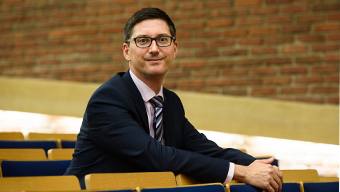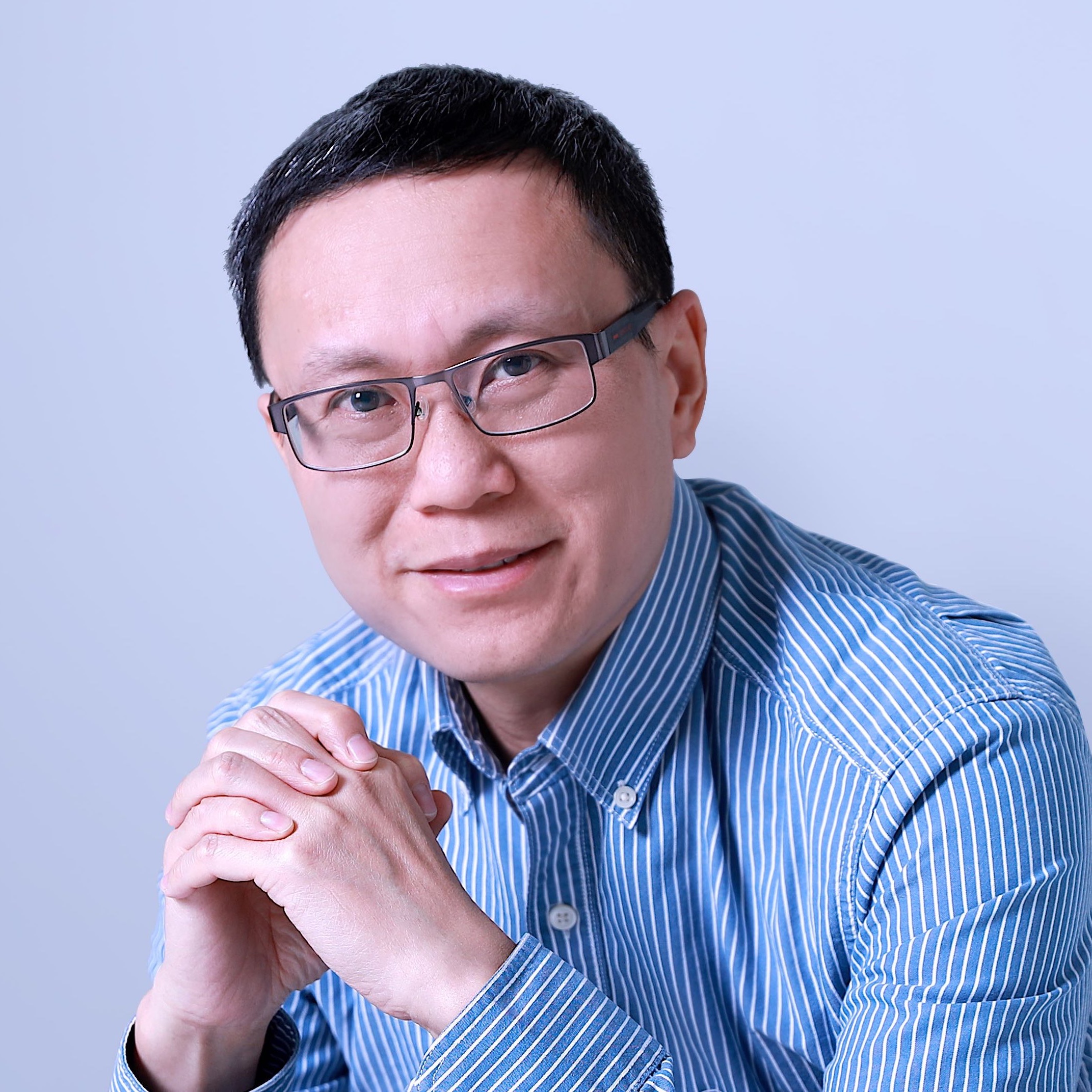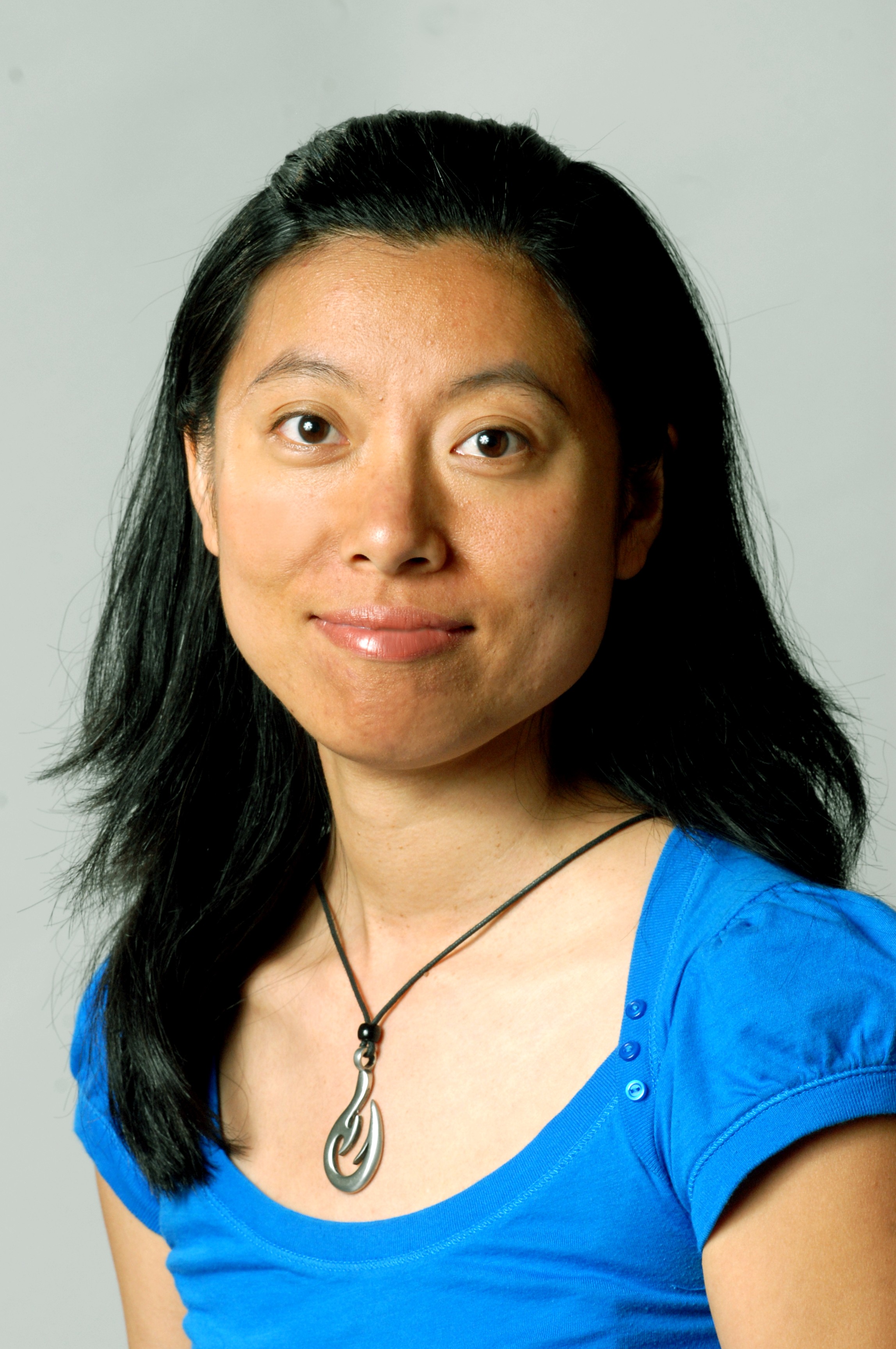Keynote Speakers
Volker Markl |
Jian Pei |
Dawn Song |
Peter Stone |
Database Systems and Information Management – Trends and a Vision
Volker Markl,
Chair of the Database Systems and Information Management (DIMA) Group at TU Berlin,
Director of the Berlin Institute for the Foundations of Learning and Data (BIFOLD),
Chief Scientist and Head of the Intelligent Analytics for Massive Data Research Group at German Research Center for Artificial Intelligence (DFKI)
 Abstract The global database research community has greatly impacted the functionality and performance of data storage and processing systems along the dimensions that define “big data”, i.e., volume, velocity, variety, and veracity. Locally, over the past five years, we have also been working on varying fronts. Among our contributions are: (1) establishing a vision for a database-inspired big data analytics system, which unifies the best of database and distributed systems technologies, and augments it with concepts drawn from compilers (e.g., iterations) and data stream processing, as well as (2) forming a community of researchers and institutions to create the Stratosphere platform to realize our vision. One major result from these activities was Apache Flink, an open-source big data analytics platform and its thriving global community of developers and production users. Although much progress has been made, when looking at the overall big data stack, a major challenge for database research community still remains. That is, how to maintain the ease-of-use despite the increasing heterogeneity and complexity of data analytics, involving specialized engines for various aspects of an end-to-end data analytics pipeline, including, among others, graph-based, linear algebra-based, and relational-based algorithms, and the underlying, increasingly heterogeneous hardware and computing infrastructure. At TU Berlin, DFKI, and the Berlin Institute for Foundations of Learning and Data (BIFOLD) we currently aim to advance research in this field via the Nebula Stream and Agora projects. Our goal is to remedy some of the heterogeneity challenges that hamper developer productivity and limit the use of data science technologies to just the privileged few, who are coveted experts. In this talk, we will outline how state-of-the-art SPEs have to change to exploit the new capabilities of the IoT and showcase how we tackle IoT challenges in our own system, NebulaStream. We will also present our vision for Agora, an asset ecosystem that provides the technical infrastructure for offering and using data and algorithms, as well as physical infrastructure components.
Abstract The global database research community has greatly impacted the functionality and performance of data storage and processing systems along the dimensions that define “big data”, i.e., volume, velocity, variety, and veracity. Locally, over the past five years, we have also been working on varying fronts. Among our contributions are: (1) establishing a vision for a database-inspired big data analytics system, which unifies the best of database and distributed systems technologies, and augments it with concepts drawn from compilers (e.g., iterations) and data stream processing, as well as (2) forming a community of researchers and institutions to create the Stratosphere platform to realize our vision. One major result from these activities was Apache Flink, an open-source big data analytics platform and its thriving global community of developers and production users. Although much progress has been made, when looking at the overall big data stack, a major challenge for database research community still remains. That is, how to maintain the ease-of-use despite the increasing heterogeneity and complexity of data analytics, involving specialized engines for various aspects of an end-to-end data analytics pipeline, including, among others, graph-based, linear algebra-based, and relational-based algorithms, and the underlying, increasingly heterogeneous hardware and computing infrastructure. At TU Berlin, DFKI, and the Berlin Institute for Foundations of Learning and Data (BIFOLD) we currently aim to advance research in this field via the Nebula Stream and Agora projects. Our goal is to remedy some of the heterogeneity challenges that hamper developer productivity and limit the use of data science technologies to just the privileged few, who are coveted experts. In this talk, we will outline how state-of-the-art SPEs have to change to exploit the new capabilities of the IoT and showcase how we tackle IoT challenges in our own system, NebulaStream. We will also present our vision for Agora, an asset ecosystem that provides the technical infrastructure for offering and using data and algorithms, as well as physical infrastructure components.
Volker Markl is a Full Professor and Chair of the Database Systems and Information Management (DIMA) Group at the Technische Universität Berlin (TU Berlin). At the German Research Center for Artificial Intelligence (DFKI), he is Chief Scientist and Head of the Intelligent Analytics for Massive Data Research Group. In addition, he is Director of the Berlin Institute for the Foundations of Learning and Data (BIFOLD), a merger of the Berlin Big Data Center (BBDC) and the Berlin Center for Machine Learning (BZML). BIFOLD is one of Germany's national Competence Centers for Artificial Intelligence and will further bolster ongoing collaborative research in scalable data management and Machine Learning. Dr. Markl is a database systems researcher conducting research at the intersection of distributed systems, scalable data processing, text mining, computer networks, machine learning, and applications in healthcare, logistics, Industry 4.0, and information marketplaces. Earlier in his career, he was a Research Staff Member and Project Leader at the IBM Almaden Research Center in San Jose, California, USA and a Research Group Leader at FORWISS, the Bavarian Research Center for Knowledge-based Systems located in Munich, Germany. Volker Markl is a computer science graduate from Technische Universität München, where he earned his Diploma in 1995 with a thesis on exception handling in programming languages. He earned his PhD in 1999 the area of multidimensional indexing under the supervision of Rudolf Bayer.
Volker Markl has published numerous scholarly papers on indexing, query optimization, lightweight information integration, and scalable data processing at prestigious venues. He holds 18 patents, has transferred technology into several commercial products, and has been involved in two successful startup exits. He has been both the Speaker and Principal Investigator for the Stratosphere Project, which resulted in a Humboldt Innovation Award as well as Apache Flink, the open-source big data analytics system. He currently serves as the President of the VLDB Endowment and was elected as one of Germany's leading Digital Minds (Digitale Köpfe) by the German Informatics (GI) Society. Volker also is a member of the Scientific Advisory Board of Software AG. Most recently, Volker and his team earned the ACM SIGMOD 2020 Best Paper Award, for their work on „ Pump Up the Volume: Processing Large Data on GPUs with Fast Interconnects “. In addition, Volker has been named as an ACM Fellow by the Association for Computing Machinery (ACM), the largest and oldest international association of computer scientists.
Towards Trustworthy Data Science
Jian Pei, Professor, School of Computing Science, Simon Fraser University, Canada
 Abstract: We believe data science and AI will change the world. No matter how smart and powerful an AI model we can build, the ultimate testimony of the success of data science and AI is users’ trust. How can we build trustworthy data science? At the level of user-model interaction, how can we convince users that a data analytic result is trustworthy? At the level of group-wise collaboration for data science and AI, how can we ensure that the parties and their contributions are recognized fairly, and establish trust between the outcome (e.g., a model built) of the group collaboration and the external users? At the level of data science participant eco-systems, how can we effectively and efficiently connect many participants of various roles and facilitate the connection among supplies and demands of data and models?
Abstract: We believe data science and AI will change the world. No matter how smart and powerful an AI model we can build, the ultimate testimony of the success of data science and AI is users’ trust. How can we build trustworthy data science? At the level of user-model interaction, how can we convince users that a data analytic result is trustworthy? At the level of group-wise collaboration for data science and AI, how can we ensure that the parties and their contributions are recognized fairly, and establish trust between the outcome (e.g., a model built) of the group collaboration and the external users? At the level of data science participant eco-systems, how can we effectively and efficiently connect many participants of various roles and facilitate the connection among supplies and demands of data and models?
In this talk, I will brainstorm possible directions to the above questions in the context of an end-to-end data science pipeline. To strengthen trustworthy interactions between models and users, I will advocate exact and consistent interpretation of machine learning models. Our recent results show that exact and consistent interpretations are not just theoretically feasible, but also practical even for API-based AI services. To build trust in collaboration among multiple participants in coalition, I will review some progress in ensuring fairness in federated learning, including fair assessment of contributions and fairness enforcement in collaboration outcome. Last, to address the need of trustworthy data science eco-systems, I will review some latest efforts in building data and model marketplaces and preserving fairness and privacy. Through reflection I will discuss some challenges and opportunities in building trustworthy data science for possible future work.
Jian Pei is a Professor in the School of Computing Science at Simon Fraser University. He is a well known leading researcher in the general areas of data science, big data, data mining, and database systems. His expertise is on developing effective and efficient data analysis techniques for novel data intensive applications, and transferring his research results to products and business practice. He is recognized as a Fellow of the Royal Society of Canada (Canada’s national academy), the Canadian Academy of Engineering, the Association of Computing Machinery (ACM) and the Institute of Electrical and Electronics Engineers (IEEE). He is one of the most cited authors in data mining, database systems, and information retrieval. Since 2000, he has published one textbook, two monographs and over 300 research papers in refereed journals and conferences, which have been cited extensively by others. His research has generated remarkable impact substantially beyond academia. For example, his algorithms have been adopted by industry in production and popular open source software suites. Jian Pei also demonstrated outstanding professional leadership in many academic organizations and activities. He was the editor-in-chief of the IEEE Transactions of Knowledge and Data Engineering (TKDE) in 2013-16, the chair of the Special Interest Group on Knowledge Discovery in Data (SIGKDD) of the Association for Computing Machinery (ACM) in 2017-2021, and a general co-chair or program committee co-chair of many premier conferences. He maintains a wide spectrum of industry relations with both global and local industry partners. He is an active consultant and coach for industry on enterprise data strategies, healthcare informatics, network security intelligence, computational finance, and smart retail. He received many prestigious awards, including the 2017 ACM SIGKDD Innovation Award, the 2015 ACM SIGKDD Service Award, the 2014 IEEE ICDM Research Contributions Award, the British Columbia Innovation Council 2005 Young Innovator Award, an NSERC 2008 Discovery Accelerator Supplements Award (100 awards cross the whole country), an IBM Faculty Award (2006), a KDD Best Application Paper Award (2008), an ICDE Influential Paper Award (2018), a PAKDD Best Paper Award (2014), and a PAKDD Most Influential Paper Award (2009).
Building towards a Responsible Data Economy
Dawn Song, Professor, Department of Electrical Engineering and Computer Science, UC Berkeley, USA
 Abstract: Data is a key driver of modern economy and AI/machine learning, however, a lot of this data is sensitive and handling the sensitive data has caused unprecedented challenges for both individuals and businesses. These challenges will only get more severe as we move forward in the digital era. In this talk, I will talk about technologies needed for responsible data use including secure computing, differential privacy, federated learning, as well as blockchain technologies for data rights, and how to combine privacy computing technologies and blockchain to building a platform for a responsible data economy, to enable more responsible use of data that maximizes social welfare & economic efficiency while protecting users’ data rights and enable fair distribution of value created from data.
Abstract: Data is a key driver of modern economy and AI/machine learning, however, a lot of this data is sensitive and handling the sensitive data has caused unprecedented challenges for both individuals and businesses. These challenges will only get more severe as we move forward in the digital era. In this talk, I will talk about technologies needed for responsible data use including secure computing, differential privacy, federated learning, as well as blockchain technologies for data rights, and how to combine privacy computing technologies and blockchain to building a platform for a responsible data economy, to enable more responsible use of data that maximizes social welfare & economic efficiency while protecting users’ data rights and enable fair distribution of value created from data.
Dawn Song is a Professor in the Department of Electrical Engineering and Computer Science at UC Berkeley. Her research interest lies in AI and deep learning, security and privacy. She is the recipient of various awards including the MacArthur Fellowship, the Guggenheim Fellowship, the NSF CAREER Award, the Alfred P. Sloan Research Fellowship, the MIT Technology Review TR-35 Award, ACM SIGSAC Outstanding Innovation Award, and Test-of-Time Awards and Best Paper Awards from top conferences in Computer Security and Deep Learning. She is an ACM Fellow and an IEEE Fellow. She is ranked the most cited scholar in computer security (AMiner Award). She obtained her Ph.D. degree from UC Berkeley. She is also a serial entrepreneur. She is the Founder of Oasis Labs and has been named on the Female Founder 100 List by Inc. and Wired25 List of Innovators.
Machine Learning for Robot Locomotion: Grounded Simulation Learning and Adaptive Planner Parameter Learning
Peter Stone, Professor, Department of Computer Science, The University of Texas at Austin, USA
 Abstract: Robust locomotion is one of the most fundamental requirements for autonomous mobile robots. With the widespread deployment of robots in factories, warehouses, and homes, it is tempting to think that locomotion is a solved problem. However for certain robot morphologies (e.g. humanoids) and environmental conditions (e.g. narrow passages), significant challenges remain.
Abstract: Robust locomotion is one of the most fundamental requirements for autonomous mobile robots. With the widespread deployment of robots in factories, warehouses, and homes, it is tempting to think that locomotion is a solved problem. However for certain robot morphologies (e.g. humanoids) and environmental conditions (e.g. narrow passages), significant challenges remain.
This talk begins by introducing Grounded Simulation Learning as a way to bridge the so-called reality gap between simulators and the real world in order to enable transfer learning from simulation to a real robot (sim-to-real). It then introduces Adaptive Planner Parameter Learning as a way of leveraging human input (learning from demonstration) towards making existing robot motion planners more robust, without losing their safety properties.
Grounded Simulation Learning has led to the fastest known stable walk on a widely used humanoid robot, and Adaptive Planner Parameter Learning has led to efficient learning of robust navigation policies in highly constrained spaces.
Dr. Peter Stone is the David Bruton, Jr. Centennial Professor and Associate Chair of Computer Science, as well as Director of Texas Robotics, at the University of Texas at Austin. In 2013 he was awarded the University of Texas System Regents' Outstanding Teaching Award and in 2014 he was inducted into the UT Austin Academy of Distinguished Teachers, earning him the title of University Distinguished Teaching Professor. Professor Stone's research interests in Artificial Intelligence include machine learning (especially reinforcement learning), multiagent systems, and robotics. Professor Stone received his Ph.D in Computer Science in 1998 from Carnegie Mellon University. From 1999 to 2002 he was a Senior Technical Staff Member in the Artificial Intelligence Principles Research Department at AT&T Labs - Research. He is an Alfred P. Sloan Research Fellow, Guggenheim Fellow, AAAI Fellow, IEEE Fellow, AAAS Fellow, ACM Fellow, Fulbright Scholar, and 2004 ONR Young Investigator. In 2007 he received the prestigious IJCAI Computers and Thought Award, given biannually to the top AI researcher under the age of 35, and in 2016 he was awarded the ACM/SIGAI Autonomous Agents Research Award. Professor Stone co-founded Cogitai, Inc., a startup company focused on continual learning, in 2015, and currently serves as Executive Director of Sony AI America.